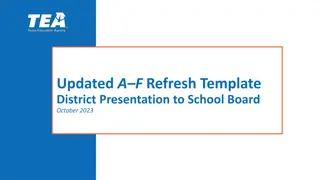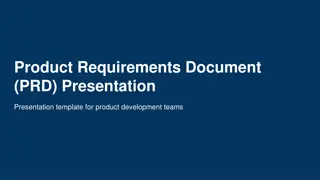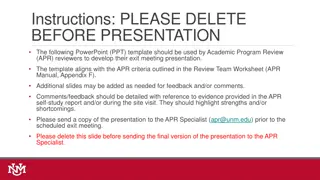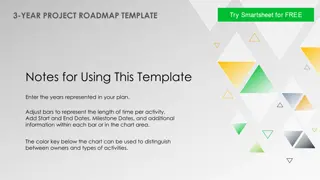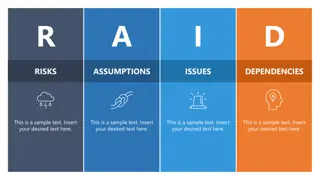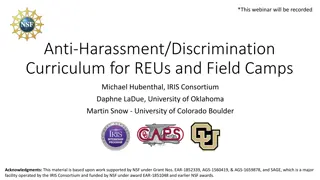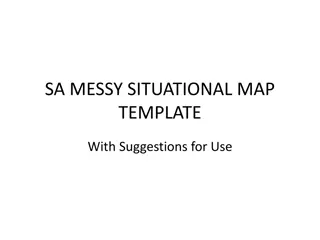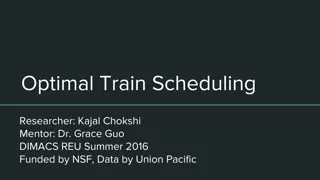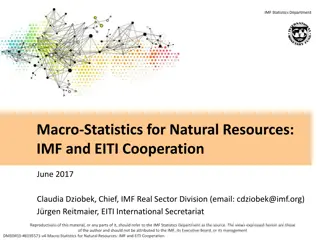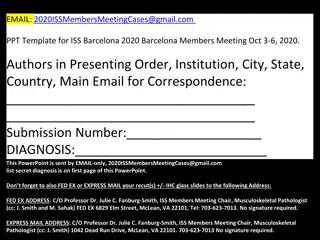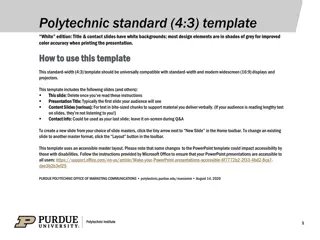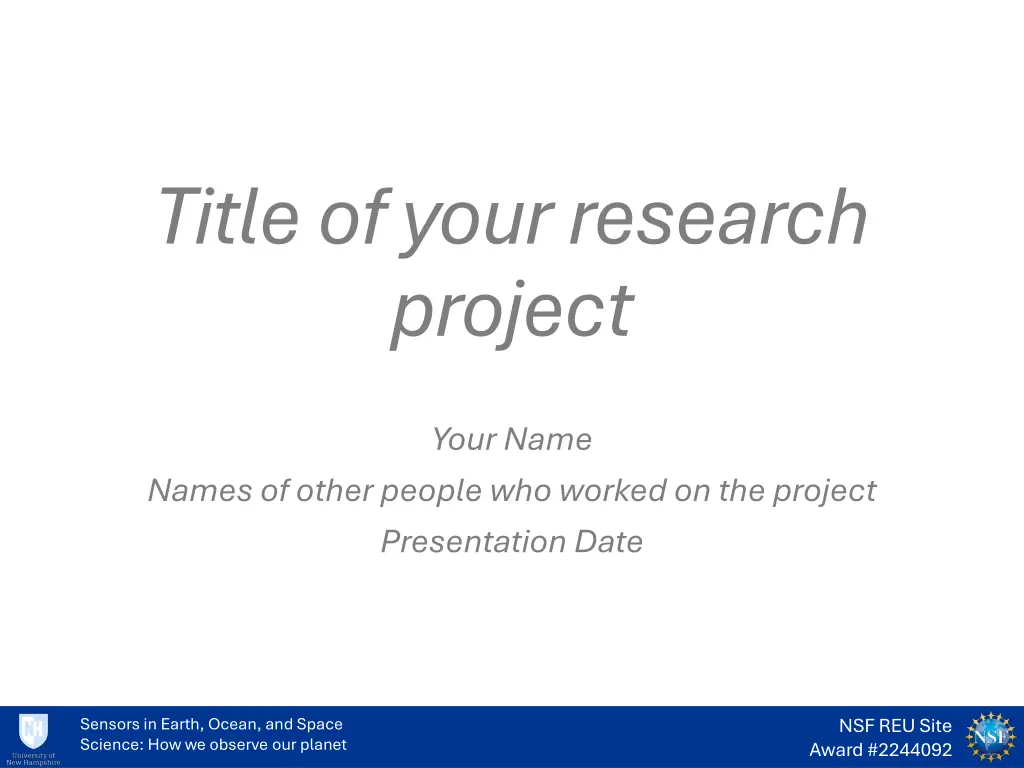
Observing Earth, Ocean, and Space: Sensors in Science
Explore the use of sensors in Earth, ocean, and space science to observe our planet. Learn about the research conducted and the valuable insights gained in this field. Discover the methods used, unexpected findings, results, next steps, and reflections from an NSF REU site award recipient.
Download Presentation

Please find below an Image/Link to download the presentation.
The content on the website is provided AS IS for your information and personal use only. It may not be sold, licensed, or shared on other websites without obtaining consent from the author. If you encounter any issues during the download, it is possible that the publisher has removed the file from their server.
You are allowed to download the files provided on this website for personal or commercial use, subject to the condition that they are used lawfully. All files are the property of their respective owners.
The content on the website is provided AS IS for your information and personal use only. It may not be sold, licensed, or shared on other websites without obtaining consent from the author.
E N D
Presentation Transcript
Title of your research project Your Name Names of other people who worked on the project Presentation Date Sensors in Earth, Ocean, and Space Science: How we observe our planet NSF REU Site Award #2244092
Research topic introduction Broad area of research What does someone new to this topic need to know? Why is this research being done? What did you learn about this field that you want to share with others?
Research Question How does your question fit into the broad research area Are you working on a larger, ongoing project, that is directed by a lab member? If so, give the context of that project or question Why is it useful to answer this question? Has anyone ever tried to answer it before?
Methods What did you do? Did you collect data? use a sensor or other equipment? write code? analyze data? read scientific papers? write a report? Why did you do it?
Methods Did anything unexpected or surprising happen? If so, how did you have to adjust your work?
Results Graphs, charts, tables, or other displays of data go here! What does this data tell you? How are you interpreting this data? For example is the trend important? or maybe linear regression is key
Next steps If the data is incomplete, what additional data is needed and why? Even if your data is complete, what new questions do you have? What other work could be done in this field to build on your findings?
REU reflections What have you learned in this REU experience? What are your educational and career goals, and have they been informed by your activities this summer? Additional acknowledgements go here: Lab members, colleagues, family, friends, others, funding


